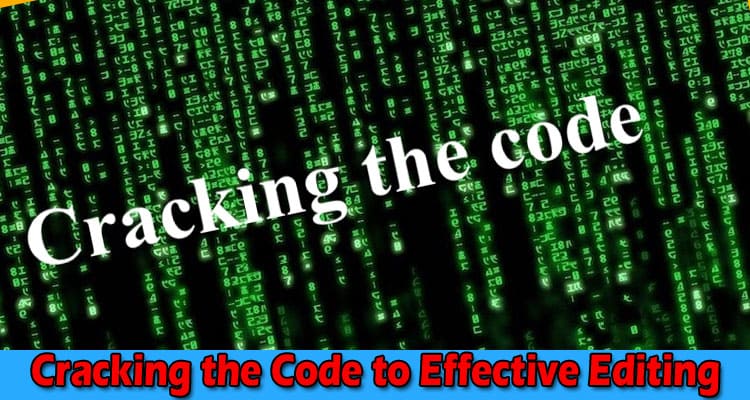Effective editing is the key to polishing your writing and ensuring that your message resonates with readers. As a writer, honing your editing skills is crucial for producing high-quality content.
In this blog post, we will delve into best practices that will help you refine and perfect your writing. From taking breaks to seeking feedback, these strategies will empower you to master the art of editing and deliver impactful, error-free work.
Table of Contents
Take a break
After completing a draft, it’s essential to take a break before diving into the editing process. Stepping away from your writing for a while allows you to detach from your work and approach it with fresh eyes.
When you return to your piece, you’ll be better equipped to spot errors, identify areas for improvement, and make necessary revisions. This break provides the mental clarity needed to effectively evaluate the overall structure, flow, and clarity of your writing.
Read aloud
Reading your work aloud is a powerful editing technique that helps uncover issues that might otherwise go unnoticed. By vocalizing your words, you can identify awkward phrasing, detect grammatical errors, and evaluate the overall coherence of your writing.
Reading aloud also allows you to assess the rhythm and flow of your sentences, ensuring a smoother reading experience for your audience. This practice helps you refine your writing, making it more engaging and impactful.
Focus on structure
A well-structured piece of writing is crucial for capturing and maintaining your readers’ attention. During the editing process, pay close attention to the structure of your work.
Ensure that it has a clear introduction that hooks the reader, a logical flow of ideas that transitions smoothly between paragraphs, and a concise conclusion that effectively summarizes your main points. Rearrange paragraphs or sections if necessary to enhance coherence and ensure that your writing follows a logical progression.
Eliminate wordiness
Concise writing is powerful writing. As you edit your work, focus on eliminating unnecessary words and phrases that may dilute your message or hinder clarity. Cut out redundancies and remove any superfluous or vague language.
Each word should serve a purpose and contribute to the overall effectiveness of your writing. By eliminating wordiness, you create a more streamlined and impactful piece that engages readers and gets straight to the point.
Check grammar and punctuation
Grammar and punctuation errors can undermine the credibility and professionalism of your writing. During the editing process, carefully review your work for grammatical and punctuation mistakes. While grammar-checking tools can be helpful, it’s essential to manually review your writing as well.
Pay attention to subject-verb agreement, correct usage of punctuation marks, and consistent verb tenses throughout your piece. Thoroughly addressing these elements ensures that your writing is clear, concise, and grammatically sound.
Proofread for typos
Even the most meticulous writers can overlook typos and misspelled words. That’s why proofreading is a crucial step in the editing process. Take the time to read your work slowly and carefully, checking for any errors that may have slipped through.
Consider proofreading your writing in multiple passes, focusing on different aspects each time. By dedicating attention to detail, you can catch typos, spelling errors, and other small mistakes that could impact the overall quality of your work.
Maintain consistent style
Consistency in writing style enhances the readability and professionalism of your work. During the editing process, pay attention to maintaining a consistent style throughout your piece. This includes using the same tense, tone, and vocabulary throughout.
Consistency ensures that your writing flows smoothly and doesn’t confuse or distract the reader. Additionally, adhere to any specific formatting guidelines required by the target platform or publication. By maintaining a consistent style, you create a cohesive and polished piece of writing.
Seek feedback
One of the most valuable aspects of the editing process is seeking feedback from others. Share your work with trusted peers, mentors, or editors who can provide fresh perspectives and constructive criticism. Their feedback can offer valuable insights, identify blind spots, and help you refine your writing further.
Actively seek out their opinions on the clarity, structure, and overall effectiveness of your piece. By incorporating feedback from others, you can improve your writing, strengthen your skills, and enhance the impact of your work.
Conclusion
In conclusion, effective editing is crucial to becoming a skilled writer. By implementing best practices such as taking breaks, reading aloud, focusing on structure, eliminating wordiness, and seeking feedback, you can refine your work and leave a lasting impact on your readers.
This is particularly important for those who are looking to self-publish their work through different self-publishing companies. A well-edited manuscript is a critical step to ensuring your message is conveyed clearly and professionally. Don’t underestimate the power of a good edit – it could be the difference between a mediocre and an outstanding piece of writing.


